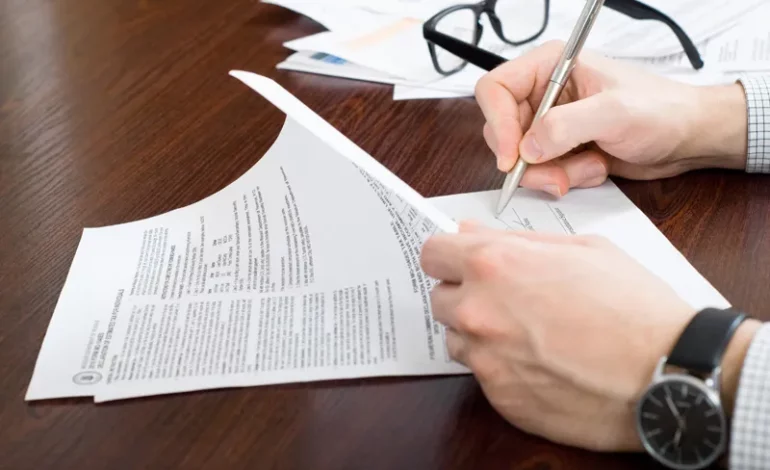Exchange of contracts explained

When you exchange contracts, you legally commit to buying the property. We take a look at this process and explain what to watch out for.
Why do we exchange contracts?
Until you exchange contracts, neither the buyer nor the sell has any legal obligation to proceed. This means that either the buyer or the seller can pull out without any penalty. The only caveat is when a reservation fee has been agreed. Both parties will sign identical contracts, but the deal only becomes legally binding when they are formally exchanged by the solicitors.
Between exchanging contracts and completion, there is a possibility that either side can pull out. However, it is incredibly rare for anyone to pull out after exchange. This is because of substantial penalties for doing so. At exchange of contracts you can be pretty certain that the deal is done.
When do I exchange contracts?
Exchange of contracts usually happens between 7 and 28 days before completion. Though, if you are buying off-plan this time period is extended significantly.
As exchanging contracts means you are legally committed to buying the property, you need to ensure that you have everything in place prior to this date. You should only exchange contracts after:
- You have agreed on a price with the seller
- Your offer includes details of fixtures and fittings
- you have received a suitable mortgage valuation
- You have been formally offered a mortgage
- You have secured the mortgage deposit
- Your solicitor has done all relevant searches
- You have organised building insurance
- You have agreed on a date of completion
- You have read, understood and signed the contract
Once you have completed this checklist you are ready for completion. This usually happens at midday on the agreed exchange date.
How do I exchange contracts?
Exchange of contracts is usually done by solicitors or conveyancers reading out the contracts over the phone. These calls are recorded to make sure the contracts are identical. They then send these to each other by post.
If you are in a chain, your solicitor/conveyancer will follow the same process. However, they will only release it if all the other people in the chain are happy proceed. This then means if one person pulls out or delays, everything gets held up.
Once you have exchanged contracts you will be in a legally binding contract to buy the property. The seller is also legally obliged to sell. If one party breaks contract they will lose their deposit (typically 10%) and can be sued by the other party.
What happens after exchanging contracts?
After exchange of contracts the next big event is completion. This is when you formally take possession of the property. However, there are a number of things which you should do prior to this.
- Final checks. It is advisable that your estate agent should visit the property just before you complete the sale. This is to ensure that all the fixtures and fittings you agreed on is in good working order
- Send a copy of the title deeds to your mortgage lender who will keep them until you repay your loan
- Notify the freeholder if the property is leasehold
- Register the transfer of ownership with the land registry
- Contact utility companies to let them know you are taking over possession of the property
- Change your address on your driving license
- Organise post forwarding
- Arrange remove quotes if you are planning to live in the property
When buying property through Esper Wealth, our progression team will be on hand to help you through the buying process. You can find information about the role of your solicitor in the purchase process. If you are buying property off-plan you can find out the extra role of your solicitor when buying off-plan property. You can speak with one of our consultants who will be happy to explain how progression works. You can click the following link to find out about the important legal documents you need when buying a property.